Remember the very first lesson you taught? Mine is etched into my memory with the searing iron (of shame). I had thought teaching was a piece of cake, especially teaching a group of kindergartners.
All I had to do was repeat what my favorite teacher did, step by step. What’s so hard about that? So on I went to put together my 30-minute lesson plan:
- Start out with this activity.
- Get the kids to move around a lot.
- Repeat 100 times.
- Play.
- Sing.
- Repeat again.
- Repeat everything at the end of the lesson.
- Get the kids to tell you what they’ve learned.
I was so proud of myself to have learned all of these steps from my teacher. On top of that, I was 100% sure I was doing the right thing. My teacher was in the classroom, observing, and I was cool, although at times her otherwise smiling face would give me that strange look. Oh well.
So what a little kid couldn’t tell me what he’d learned in class? They’re kids! They don’t remember anything. Not my fault.
After the lesson my teacher asked me the questions that will haunt me for the rest of my teaching career,
“Why did you choose these activities?”
What was the purpose of singing this song?
Why were you making them repeat like parrots?
The good and the bad teachers
I must digress here for a second to add an important piece to this blog post puzzle. The reason I was so confident of myself was partially because of the teacher. And not just her, a couple of other teachers had contributed to my premature confidence boost.
You see, the difference between good and bad teachers is simple:
- Bad teachers make you feel like everything you’re learning is hard.
- Good teachers make learning feel fun and effortless.
To translate into my teacher training experience, my good teachers made me feel like teaching wasn’t a big deal.
All I had to do was observe them. Write down their steps. Calculate their moves. Copy their activities. And boom >>> my student gets the same results I did.
To my surprise, things didn’t exactly follow the plan. I learned it the hard way that copying the steps won’t give me the same results.
Not until I figured out why I had to take each one of the steps.
So this post is about one vital truth about teacherpreneurship: mindlessly copying the steps won’t lead you where you want to be. You may read a dozen of my posts and feel like this launching, blogging, niching is not a big deal (maybe I’m just making it fun and effortless).
You may try some tricks and they may work. But you will not get the same results (definitely no repeat results) until you know what’s behind the steps. You will first need to figure out the strategy.
#Teacherpreneurs: don't just copy random steps. Design your own online business strategy.Click To Tweet
Copying steps as an online teacher
You may have read my post about beginning stages of teacherpreneurship: you feel stuck and overwhelmed.
Based on my own experience, I will also add that in the beginning you want to apply every possible tactic and make it work. Sometimes it will – which will be surprising to you and feel almost like magic or luck. But most of the time it won’t.
That’s because copying steps without knowing why you have to take them may lead you somewhere totally different. Knowing the steps only scratches the surface.
Here’s what I mean, practically (based on questions I’ve received via email and during webinars):
*** You want to launch an e-book and you tell yourself, “How hard can that be?” You look at what others have done (successfully), write down the steps (the ones that you see of course) and copy them.
You spend time publicizing, promoting and agonizing over whether or not it’s going to work. In the end, nobody buys. So you realize that all of this teacherpreneurship is a big scam because the person who writes all those cool blog posts hasn’t been really detailed about the process.
***You decide to get into email marketing. How hard should that be? And why spend time devising some “master plan”? You spend hours, days and weeks listening to all the gurus, writing down their steps.
You replicate the process but the result is the people on your list aren’t buying anything. Of course, there’s nobody to help with troubleshooting.
***You listen to somebody’s thorough guide on how to create a compelling profile on italki. You pause the recording, write down the steps, words, phrases. You toil over the video for hours making it exactly the way you’ve been told.
Result? Still no students.
***You look at this gorgeous website and feel a bit of professional jealousy creeping in. Instead of asking why the text on this website is so persuasive and what makes the design so appealing, you decide to copy.
And copy you do. The template. The text. The layout. The buttons. The colors. (Well, except some details specific to your industry). But the darn result is not that impressive. What are you doing wrong?
Where's the Missing Link?
Years after that dreadful first lesson that I taught as an over-confident student, broken by the fact that teaching isn’t as easy as I thought it would be, wondering why in the world this or that student wasn’t learning, I talked to my then Dean – a wise man and a talented teacher who knew what to say and when.
“You rely on your emotional knowledge.”
“What do you mean?”
“The activities you do in the classroom… You do them without knowing why.”
Ouch! That hurt.
But I could see by my lack of results that he was right. I must say here that my lessons were popular, and even the other day I received a message on Instagram from a student whom I taught 10 years ago thanking me for what I’d taught her. But you know what I’m talking about.
After discovering that my lessons, carefully planned by the book, wouldn’t work I stopped and asked myself why?
What is the purpose of this activity? How is this helping students achieve their goals?
- That’s when I dropped tongue twisters because they weren’t helping.
- That’s when I stopped writing faceless content for everyone out there and focused on the niche.
- That’s when I began asking myself why? whenever I felt like I had to copy somebody else’s strategy (go on youtube live or get facebook ads, or pump money into some stellar course, or buy that plugin).
Not that any of these activities are bad in themselves, but I began asking myself how does this fit into my worldview, my teaching style, my business model, my stage of business right now, and most importantly how does this benefit my community?
In his talk Start with Why: How Great Leaders Inspire to Take Action Simon Sinek reminds us a simple truth about the core of sales process (applicable to teacherpreneurship), “People don’t buy what you do; they buy why you do it.”
"Why" is your strategy. "What" is your tactics.
In the military vocabulary there’s a huge difference between strategy and tactics. Strategy stands for a plan that helps you achieve bigger/overall goal. It’s your direction, your map, something you refer to if you’ve got the why question.
Tactics is a series of daily tasks you do as a part of your strategy. Tactics can vary. Strategy remains the same. When there’s a question of why this and not that task, you go back to the strategy.
Teacherpreneurs look at marketing gurus, read their blogs and listen to their podcasts, but what they see are some random tactics from a part of somebody’s strategy.
They implement them without knowing the full strategy. Tactics may work. But the overall goal isn’t reached.
#Teacherpreneurs: following someone's steps to success won't guarantee the same results. #strategyClick To Tweet
***
Ready to develop your own strategy for your product or program? Check out my mini-course for actionable tips:
So what do you do with all of this now?
Do you have a strategy? I asked somebody months ago. The answer was, “You mean, what email marketing service I use?”
Here’re a few questions to help you navigate through your teacherpreneurial struggles when tactics don’t seem to work. Disclaimer: answering questions may not necessarily help you form a strategy right now, but they will indicate whether or not you have it.
- Do you know where you’re going or are you figuring things out as you go?
- Can you easily identify your niche and your ideal client?
- Why are you teaching XYZ online?
- What is the core message of all of your content?
- Do you know where you’ll be in 1 year and are you sure you’ll actually get there?
Depending on the answers to these questions you may discover that somebody else’s patchy tactics may not help you achieve your goals. It may help that marketer achieve her goals, but it will only drain your energy and waste your time.
Make your bold step forward and create your strategy, your own road map. The benefit of taking the time to do it is that you’ll force yourself to ask important questions about your business, and as a result you’ll craft the strategy unique to you that will translate into results.
You will no longer feel like a fake or a scam or an impostor. You will be you, and that’s what your clients want. Most importantly, being you will feel liberating and empowering, and once you discover that, you’ll begin seeing small rewards for your hard work.
The post was updated in April, 2021.


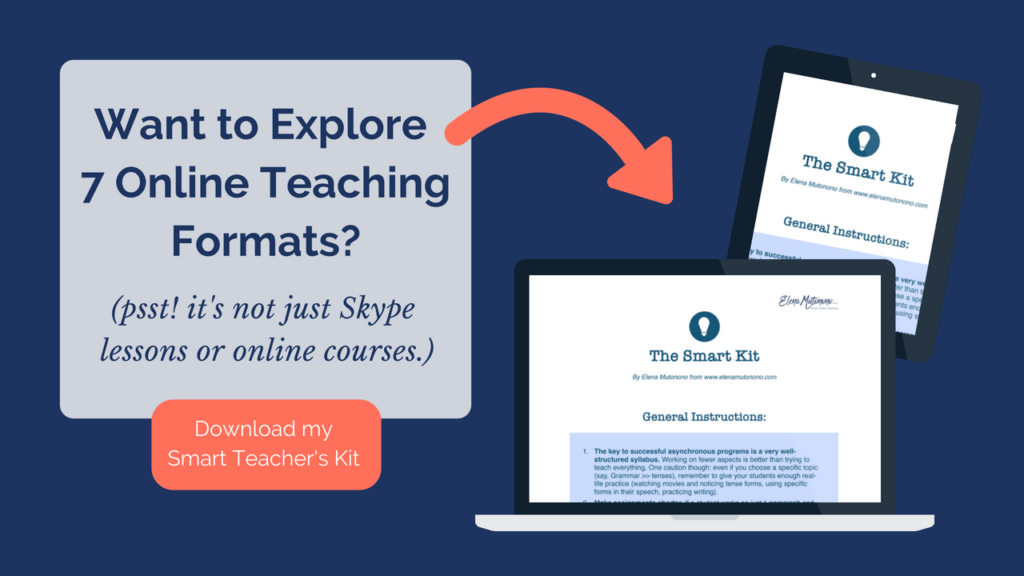
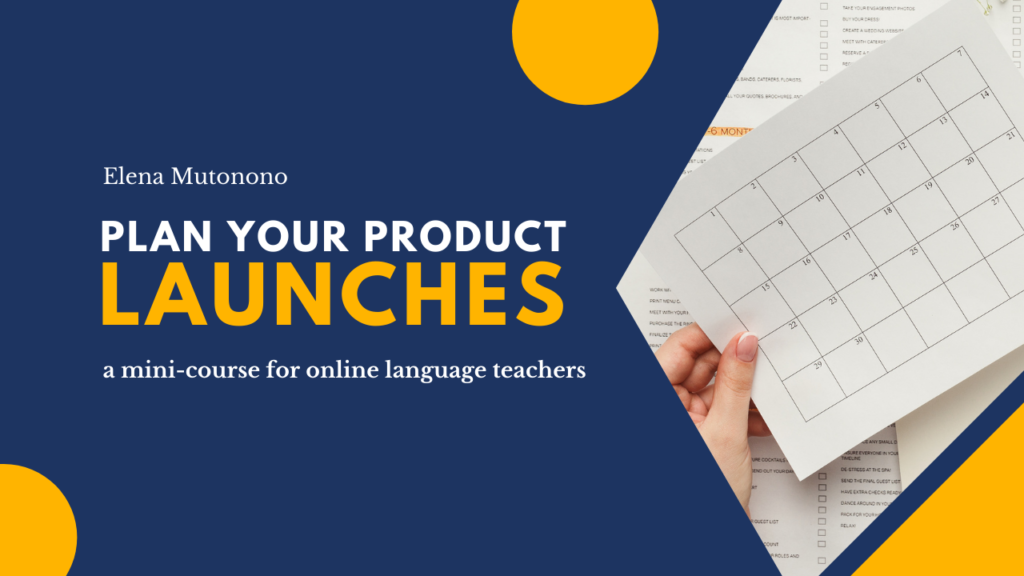
 Welcome to my nook where *Big Magic* happens. My name is Elena Mutonono, I help small business owners package their services as digital products and sell them online. I want you to work smarter, not harder. Increase your impact beyond your current face-to-face clients. Grow your business as you reach more people all over the world.
Welcome to my nook where *Big Magic* happens. My name is Elena Mutonono, I help small business owners package their services as digital products and sell them online. I want you to work smarter, not harder. Increase your impact beyond your current face-to-face clients. Grow your business as you reach more people all over the world.
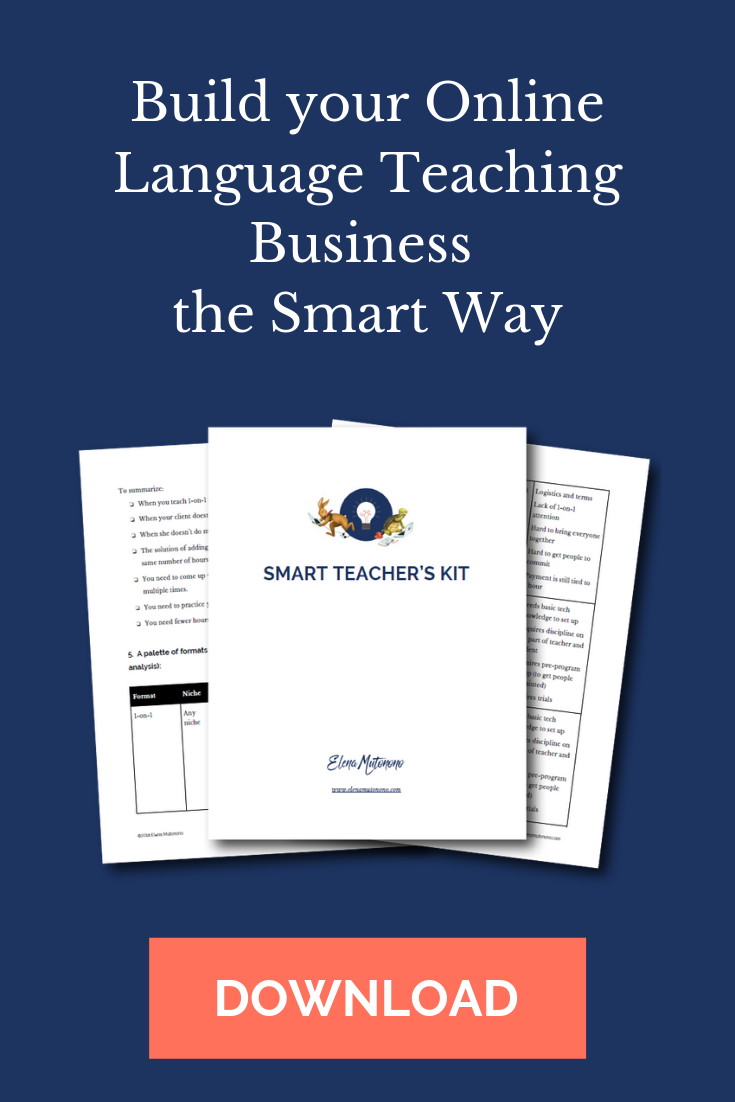


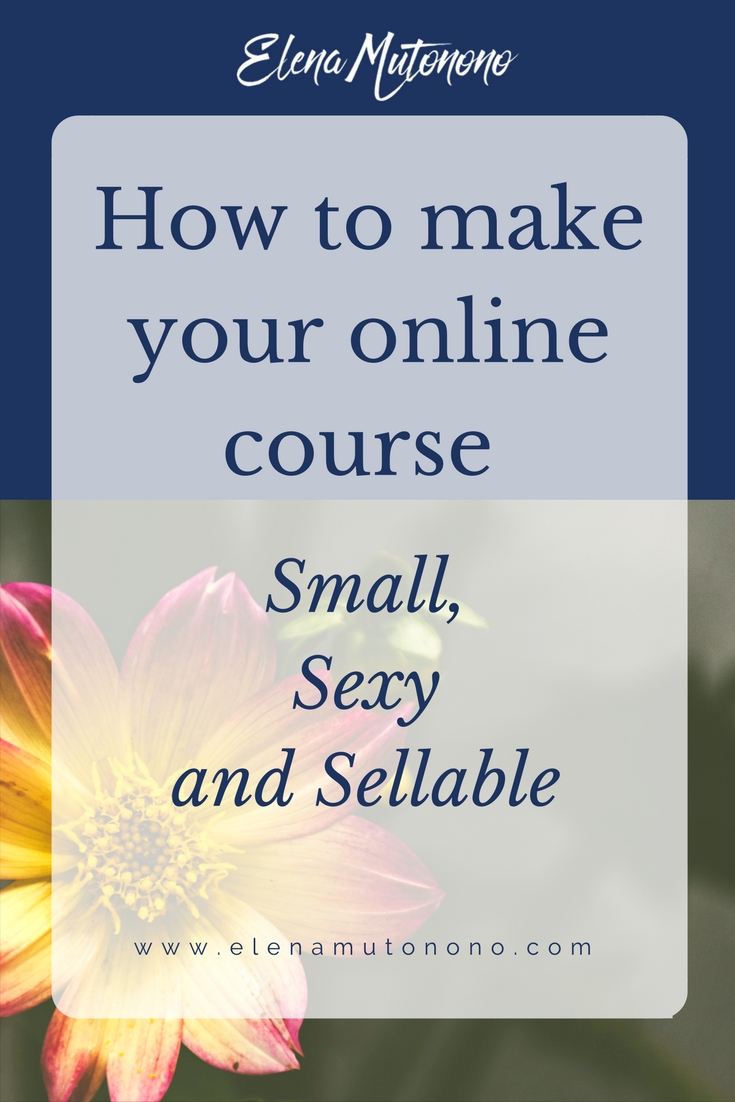


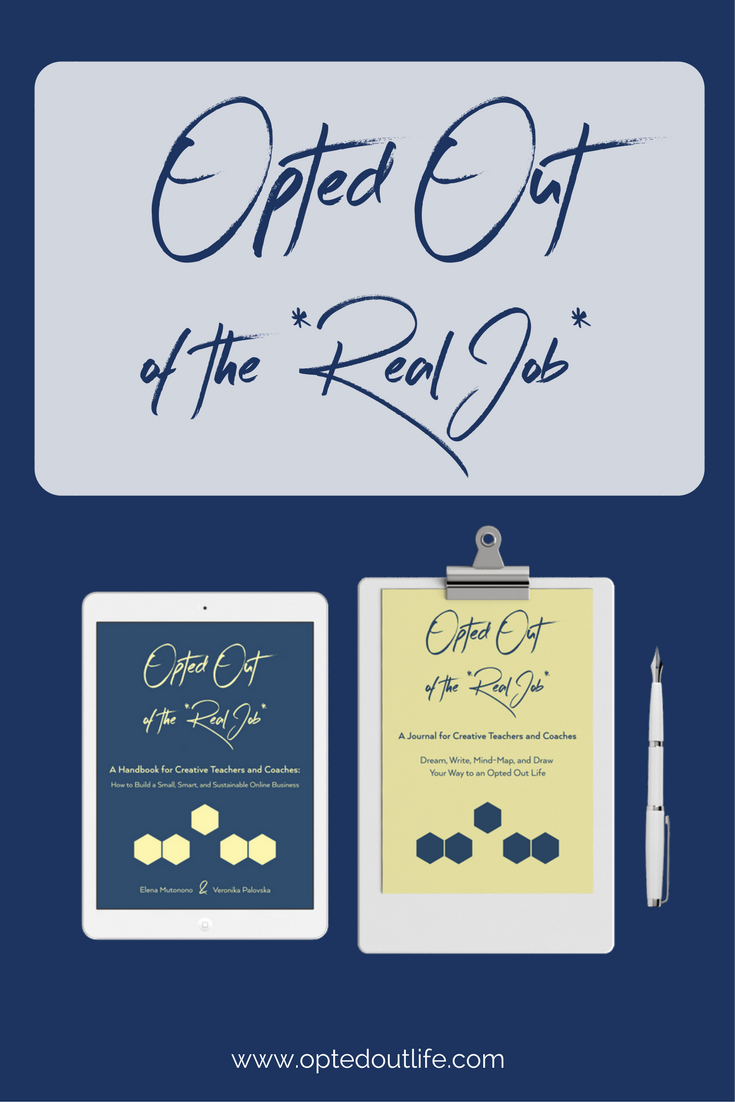

Great words Elena. I had many questions (that I didn’t even knew I had) answered with all the information in this post. It’s absolutely clear for me now the reason(s) why many people who follow successful Internet gurus do not succeed.
My personal conclusion is that whatever we (teacherpreneurs) do, has to be from the heart with a genuine sense of humanity because, at the end, that’s what we are, humans.
Yes, Ruben! Humanity speaks more convincingly than any sales gimmick out there.